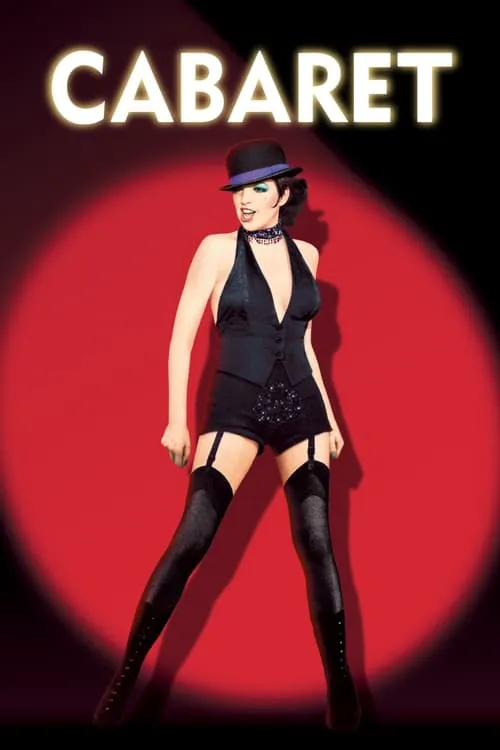Cabaret

Plot
In the tumultuous city of Berlin, 1931, a sense of unease lingers beneath the surface of a thriving nightlife. The Kit Kat Club, a seedy nightclub, stands as a beacon of escapism, where patrons can temporarily forget the troubles of the world and indulge in the decadent pleasures of music, drink, and dance. At the heart of this vibrant club is Sally Bowles, an enchanting young singer with a voice that can charm the birds from the trees. With a sparkle in her eye and a carefree attitude, Sally weaves her way through the club scene, taking with her those who are captivated by her charm. Sally lives a life of hedonism, fueled by her desire for freedom and excitement. Her antics often land her in precarious situations, yet she never seems to lose her sense of optimism and joy. Her closest friend and confidant in Berlin is Brian Roberts, a young Englishman who has recently arrived in the city. Brian, an academic, has come to Berlin to study and research, seeking to expand his knowledge and broaden his horizons. Despite their initial differences, Sally and Brian strike up a close friendship, drawn to each other by their shared sense of curiosity and desire for adventure. As the story unfolds, the Kit Kat Club becomes a microcosm of the turmoil brewing outside its walls. The rise of the Nazi Party, led by the charismatic and ruthless Adolf Hitler, is a growing threat to the city and its people. The air is thick with tension, and the sense of unease is palpable. Yet, inside the Kit Kat Club, the revelers continue to dance and sing, ignoring the danger that looms on the horizon. Enter the emcee, the Kit Kat's enigmatic and flamboyant host, who seems to embody the spirit of the club. With his sharp wit and razor-sharp tongue, the emcee delights in skewering the pretensions of the club's patrons, yet beneath his bravado lies a deep sense of vulnerability and despair. He becomes a sort of mentor to Sally, guiding her through the complexities of the club's world and offering words of wisdom when she needs them most. As the relationship between Sally and Brian deepens, they begin to confront the harsh realities of life in Berlin. The Nazi Party's influence grows stronger, and the city becomes increasingly segregated and divided. Sally, a free spirit who has always prided herself on her independence, begins to see the world in a different light. She witnesses the rise of anti-Semitism and the persecution of Jews, which serves as a stark reminder of the dangers that lurk outside the Kit Kat's doors. The emcee, too, struggles to come to terms with the changing world. His own sense of identity and belonging is torn apart by the Nazi ideology, which seeks to suppress individuality and creativity. As he watches Sally and Brian navigate the complexities of their relationships, he is forced to confront his own fears and doubts. In the midst of this turmoil, Sally finds herself torn between her love for Brian and her desire for freedom and excitement. She is caught between her desire for a conventional life with Brian and the thrill of living independently, free from the constraints of societal expectations. Brian, too, struggles to reconcile his own desires and values with the harsh realities of the world around him. As the story reaches its climax, the Kit Kat Club is forced to confront the harsh realities of the world outside. The Nazi Party's influence grows stronger, and the club is faced with the threat of closure and the persecution of its patrons. In the face of this danger, the club members band together, standing in defiance of the Nazi ideology and celebrating the beauty and diversity of their community. In the end, it is the emcee who delivers the film's most poignant and powerful lines, as he stands on stage, defying the audience and the Nazi Party's ideology. "Tomorrow, when the war is won," he sings, "and our brothers come marching home... When the war is done, and we've all gone home... We'll meet again, don't know where, don't know when... But I know we'll meet again someday." The words are a poignant reminder of the Kit Kat Club's sense of community and its determination to survive in the face of adversity. The film ends on a bittersweet note, as Sally leaves the club with Brian, unsure of what the future holds. The Kit Kat Club remains, a beacon of hope and defiance, standing against the rising tide of Nazi Germany. The emcee's final words echo in the audience's minds, a tribute to the power of art and the human spirit in the face of oppression.
Reviews
Recommendations




